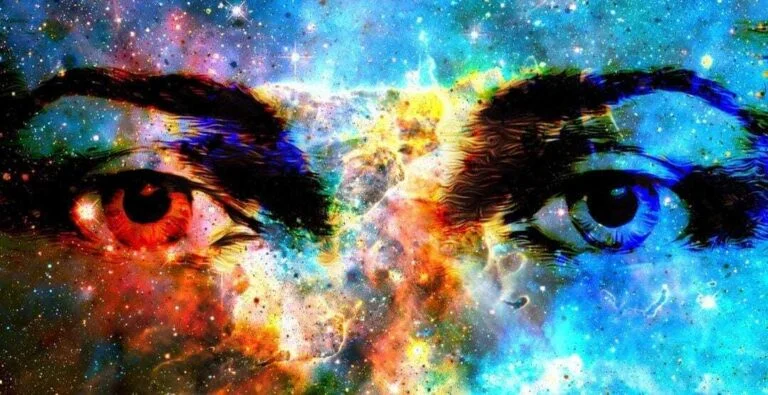Sleeping Infront Of A Mirror Spiritual Meaning Explained
Have you ever found yourself waking up from a deep slumber, only to realize you were sleeping in front of a mirror? It might sound like a scene from a horror movie, but for many, this experience holds a deeper, spiritual meaning. In this article, we’ll delve into the intriguing world of sleeping in front of a mirror and explore its spiritual significance.
What do mirrors symbolize spiritually?
Mirrors are spiritual symbols of introspection, honesty, and clarity. It invites people to reflect on themselves and face who they really are. Mirrors encourage people to see past outward appearances because they symbolize the transient nature of material existence.
They reflect our relationship to a higher power and act as a constant reminder of our divine nature. Mirrors encourage personal development and transformation; they represent the path to enlightenment and self-improvement.
Self-examination helps people face their weaknesses as well as their strengths, embracing spiritual awakening and authenticity. Mirrors reveal the intricacy and beauty of our souls, leading us on a journey of self-discovery and inner fulfillment. They also contain profound truths about the human experience.

Do dreams really have a spiritual connection?
To understand the spiritual significance of sleeping in front of a mirror, we must first appreciate the importance of dreams. Dreams have long been regarded as windows to the soul, offering glimpses into our subconscious mind and innermost thoughts. In many spiritual traditions, dreams are seen as messages from the divine or guides for our waking life.
When we sleep in front of a mirror, we bring together two powerful symbols: the mirror and the dream. This combination can amplify the spiritual experience and open doors to new insights and revelations.
What is the Spiritual Meaning of Sleeping Infront Of A Mirror?

So, what does it mean to sleep in front of a mirror from a spiritual perspective? The interpretation can vary depending on cultural beliefs and personal experiences. However, there are some common themes that emerge.
01. Reflection and Self-Exploration
One interpretation of sleeping in front of a mirror is that it represents a journey of self-exploration. The mirror reflects not only our physical appearance but also our inner thoughts, fears, and desires.
By sleeping in front of a mirror, we may be inviting a deeper exploration of our subconscious mind and confronting aspects of ourselves that we may have been avoiding.
02. Amplifying Dreams and Intuition
Another belief is that sleeping in front of a mirror can amplify our dreams and intuition. The mirror acts as a conduit for spiritual energy, allowing us to tap into the collective unconscious and receive messages from the divine.
This heightened state of awareness can lead to vivid dreams, prophetic visions, and a greater sense of connection to the spiritual realm.
03. Protection and Warding Off Negativity
On the flip side, some people believe that sleeping in front of a mirror can invite negative energy or malevolent spirits.
According to this belief, mirrors can act as portals for entities from the spirit world, and sleeping in front of one may leave us vulnerable to their influence. To counteract this, practitioners may employ protective rituals or avoid sleeping in front of mirrors altogether.
Is it good to sleep next to a mirror?
It can cause conflicting emotions and ideas to sleep next to a mirror. There is no scientific proof that mirrors have a direct impact on the quality of sleep, despite the fact that some cultures and individuals avoid them out of superstitions or spiritual concerns.
On the other hand, people who are uncomfortable with their reflection in the dark may find it uncomfortable or unsettling to sleep close to a mirror psychologically. Mirrors facing the bed should not be placed, according to feng shui principles, as this is thought to interfere with the flow of energy that promotes sleep.
The choice ultimately comes down to cultural values and level of comfort. To encourage calm and relaxation before bed, many people would rather not sleep close to a mirror.
Biblical Meaning of Water in Dreams & Interpretation
spiritual life well
Why should we cover mirror while sleeping?
There are several cultural and spiritual traditions that support the custom of covering mirrors when one is sleeping. Some cultures think that mirrors can trap spirits or energy at night, preventing people from sleeping through the night or giving them nightmares.
By reducing visual distractions, covering mirrors may, from a psychological standpoint, promote a relaxing atmosphere. Furthermore, it’s believed in feng shui that covering bedroom mirrors will help to promote relaxation and stop vital energy (chi) from dispersing.
Covering mirrors at night is often considered, for a variety of reasons, a way to promote a more tranquil and restful sleeping environment, in accordance with personal beliefs and cultural customs.
What does the Bible say about mirrors?
The Bible doesn’t specifically mention mirrors as we know them today, but it does contain passages that touch upon themes related to reflection, self-perception, and spiritual insight.
1 Corinthians 13:12 (NIV): “For now we see only a reflection as in a mirror; then we shall see face to face. Now I know in part; then I shall know fully, even as I am fully known.”
Bible
This verse speaks metaphorically about the limitations of human understanding compared to divine knowledge. It suggests that our understanding of spiritual matters is currently imperfect, akin to seeing a reflection in a mirror, but one day we will comprehend fully.
James 1:23-25 (NIV)
Anyone who listens to the word but does not do what it says is like someone who looks at his face in a mirror and, after looking at himself, goes away and immediately forgets what he looks like. But whoever looks intently into the perfect law that gives freedom, and continues in it—not forgetting what they have heard, but doing it—they will be blessed in what they do.”
Bible
Here, James uses the analogy of looking into a mirror to illustrate the importance of not just hearing the word of God but also acting upon it.
While the Bible doesn’t directly delve into the symbolism of mirrors, it does employ metaphorical language and imagery to convey spiritual truths and moral lessons, some of which involve the concept of reflection and self-examination.





